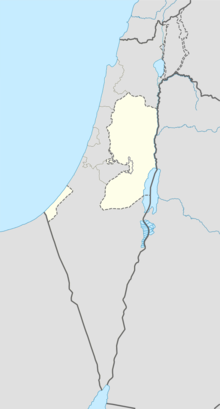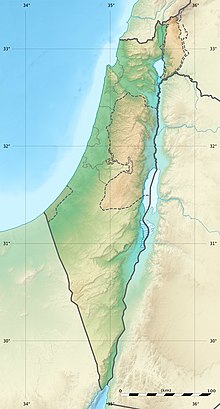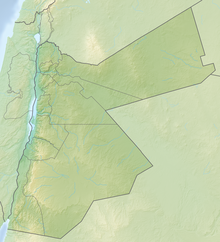Our website is made possible by displaying online advertisements to our visitors.
Please consider supporting us by disabling your ad blocker.
Battle of the Yarmuk
| Battle of Yarmuk | |||||||||
|---|---|---|---|---|---|---|---|---|---|
| Part of the Muslim conquest of the Levant (Arab–Byzantine wars) | |||||||||
 Illustration of the Battle of Yarmuk by an anonymous Catalan illustrator (c. 1310 – 1325) | |||||||||
| |||||||||
| Belligerents | |||||||||
| Rashidun Caliphate |
Byzantine Empire Ghassanid Kingdom Tanukhids | ||||||||
| Commanders and leaders | |||||||||
|
Umar ibn al-Khattab Khalid ibn al-Walid Abu Ubayda ibn al-Jarrah Amr ibn al-As Zubayr ibn al-Awwam Malik al-Ashtar Shurahbil ibn Hasana Yazid ibn Abi Sufyan Al-Qa'qa' ibn 'Amr al-Tamimi Amru bin Ma'adi Yakrib Iyad ibn Ghanm Dhiraar bin Al-Azwar Abd al-Rahman ibn Abi Bakr Ubadah ibn al-Samit |
Heraclius Theodore Trithyrius † Vahan †[g] Jabalah ibn al-Aiham Dairjan † Niketas the Persian Buccinator (Qanatir) Gregory[1] | ||||||||
| Strength | |||||||||
|
15,000–40,000 (modern estimates)[d] 24,000–40,000 (primary Arab sources)[e] |
20,000–40,000 (modern estimates)[a] 100,000–200,000 (primary Arab sources)[c] 140,000 (primary Roman sources)[b] | ||||||||
| Casualties and losses | |||||||||
| 4,000 killed[2] |
40,000 killed (modern estimates)[3] 70,000–120,000 killed (primary Arab sources)[f] | ||||||||
Battle location on a map of modern Syria | |||||||||
The Battle of the Yarmuk (also spelled Yarmouk) was a major battle between the army of the Byzantine Empire and the Arab Muslim forces of the Rashidun Caliphate. The battle consisted of a series of engagements that lasted for six days in August 636, near the Yarmouk River (also called the Hieromyces River), along what are now the borders of Syria–Jordan and Syria-Israel, southeast of the Sea of Galilee. The result of the battle was a decisive Muslim victory that ended Roman rule in Syria after about seven centuries. The Battle of the Yarmuk is regarded as one of the most decisive battles in military history,[4][5] and it marked the first great wave of early Muslim conquests after the death of the Islamic prophet Muhammad, heralding the rapid advance of Islam into the then-Christian/Roman Levant.
To check the Arab advance and to recover lost territory, Emperor Heraclius had sent a massive expedition to the Levant in May 636. As the Byzantine army approached, the Arabs tactically withdrew from Syria and regrouped all their forces at the Yarmuk plains close to the Arabian Peninsula, where they were reinforced, and defeated the numerically superior Byzantine army. The battle is widely regarded to be Khalid ibn al-Walid's greatest military victory and to have cemented his reputation as one of the greatest tacticians and cavalry commanders in history.[6]
- ^ Nicolle 1994, pp. 64–65.
- ^ Akram 2004, p. 425.
- ^ Britannica (2007): "Losses: Byzantine allied, 40,000"
- ^ Nafziger & Walton 2003, p. 30.
- ^ Nicolle 1994, p. 6.
- ^ Nicolle 1994, p. 19.
Previous Page Next Page








